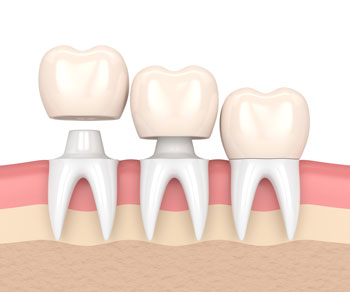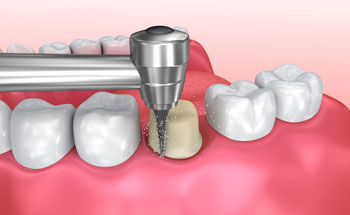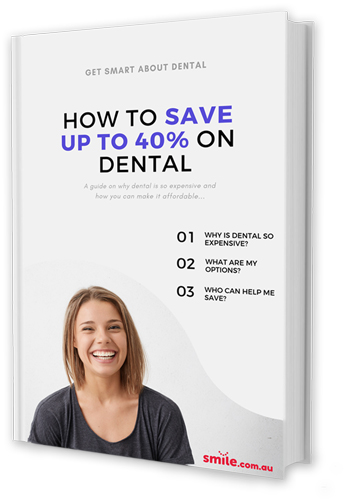Dental Crown: Tooth Crown Cost In Australia, Tooth Cap Treatment Procedure
Reviewed June 2024 by Our Content Experts
- What Are Dental Crowns/Tooth Caps?
- How Much Do Dental Crowns/Teeth Caps Cost?
- Dental Crown/Tooth Cap Treatment Procedure
- Can a Dental Crown/Tooth Cap Fix a Chipped Tooth?
- Why is a Dental Crown/Tooth Cap Needed?
- What Types of Dental Crowns/Tooth Caps Are Available?
- Is Zirconia Better than Porcelain?
- Is a Dental Crown Painful?
- How Well Do Dental Crowns Work?
- How to Prepare for a Crown
- What Problems Could Develop with a Dental Crown?
- How Long Do Dental Crowns Last?
- What Can I Expect After Treatment?
- Can a Dental Crown Fall Out?
- Can a Dental Crown/Tooth Cap Decay?
- Can You Repair a Dental Crown/Tooth Cap?
- Can a Dental Crown/Tooth Cap Stain?
- Can I Use Teeth Whitening on Dental Crowns/Tooth Caps?
- How Should I Clean & Care for My Dental Crown?
- Will My Dental Crown be Noticeable?
- Are There Any Alternatives to a Dental Crown?
What Are Dental Crowns/Tooth Caps?
A dental crown is a tooth-shaped, custom-made 'cap' that is placed over a tooth, either for protection or cosmetic enhancement. Dental crowns are used to restore a tooth's shape, size and strength, as well as improving its overall appearance.

Dental Crowns/Tooth Caps
How Much Do Dental Crowns/Teeth Caps Cost?
The cost of a dental crown varies depending on which tooth requires the crown and whether the crown is ceramic, porcelain, or metallic. Based on data from the Australian Dental Association, a ceramic crown (item 613) can cost up to $2,100 and a porcelain crown (item 615) can be up to $2,100. With Smile dental cover, you get reduced and capped fees on dental crowns.
Select your state in the cost comparison table below for more detailed examples of the price of dental crowns in your location.
Dental Crown Cost Comparison
Reviewed June 2024 by Expert Georgi Mack
Select State:
Item No.
Dental service
Regular Patients Pay
Smile Capped Fee
(Often less)
Save with Smile dental cover!
'Regular Patients Pay' is based on the Australian Dental Association (ADA) and Health Industry Claims and Payments Service (HICAPS).
'Smile Capped Fee' means members will not pay more than this fee & will often pay less so savings are often more!
These examples are guides, your treatment may vary.

Top-rated dental cover in Australia!


Dental Crown/Tooth Cap Treatment Procedure
A dental crown usually requires two visits to the dentist. At the first appointment:
- Your Smile dentist will examine the tooth. The examination is needed to ensure that your tooth can support a crown. Your dentist may begin filing it down to prepare for the crown at your first appointment.
- Alternatively, if the tooth is severely damaged or broken, your dentist may need to fill it in to make it large enough to properly receive the crown.
- After the tooth is filed or filled to the proper shape, your dentist may take an impression of the tooth, as well as those surrounding it. The impression is normally sent away to a dental lab, so the permanent crown can be made.
- By the end of this first visit, your tooth may have a temporary crown that protects it until the final crown is ready to be permanently placed on the treated tooth.
When the permanent crown is ready, you may have your second visit. At your second appointment, your Smile dentist may remove the temporary crown and position and fasten the new permanent crown to the treated tooth with a special adhesive.
Your dental crown may take some getting used to, but in time a permanent dental crown should look, function, and feel like a regular tooth. This is a simple summary of the dental crown procedure generally, and it is recommended that you seek advice from your Smile dentist with respect to your dental crown treatment procedure.

Dental Crown Procedure
Can a Dental Crown/Tooth Cap Fix a Chipped Tooth?
If you have a chipped or damaged a tooth, or you just wish to improve the aesthetic appeal of your smile, tooth caps may be the answer. Dental crowns (or tooth caps) offer a simple solution for restoring and protecting your teeth while creating a beautiful, natural-looking smile.
Get your tooth cap treatment done with a Smile dentist. Smile makes dental cover and dental care more affordable so that everyone can achieve good health and a great smile for life. With Smile, you get reduced & capped dental fees on the spot at every visit to any of our 4,000+ Smile dentists across Australia. Plus, there's no benefit limits, no waiting periods, no treatment exclusions and no claiming rebates.
Why is a Dental Crown/Tooth Cap Needed?
Dental crowns are used for many reasons, including:
- Restoring a chipped, cracked tooth or worn-down tooth
- Protecting a weak tooth
- Supporting a dental bridge
- Covering a tooth with a large filling
- Covering a dental implant
- Covering misshaped or discoloured teeth
From tooth damage to aesthetic preference, dental crowns are able to protect your teeth and help create a beautiful smile.
What Types of Dental Crowns/Tooth Caps Are Available?
There are many different dental crowns available to suit anyone’s needs and budget. Permanent tooth caps can be made from materials including:
- Metal
- Porcelain-fused-to-metal
- Resin
- Ceramic
Metal crowns are the most long-lasting kinds available. They rarely chip or break, and they cause minimum wear to other teeth. However, because of their distinctive metal colour, these crowns are best for molars.
Porcelain-fused-to-metal crowns are a more popular choice as they can be colour-matched to your natural tooth. There is a chance that the porcelain will chip or break, and they also cause more wear to opposing teeth than all-metal crowns.
Resin crowns are a more affordable option compared to other crown types, but they wear down over time and are more susceptible to fractures than crowns made from other materials.
Ceramic or porcelain crowns are not as strong as metal or porcelain-fused-to-metal crowns, but they provide the best natural colour match. This makes them the ideal choice for front teeth.
Is Zirconia Better than Porcelain?
Zirconia offers enhanced durability and strength. Tooth caps/crowns using zirconia usually last longer than porcelain. Zirconia dental restorations look very natural and are more translucent so the cap reflects light in the same manner as natural teeth.
Is a Dental Crown Painful?
The dental crown procedure requires a local anaesthetic. After your procedure is over and the anaesthesia has worn off, you may feel some sensitivity or soreness in the gums around the tooth with the temporary crown. The pain is generally minimal and should not last long.
Your dentist will make you comfortable during a crown procedure by numbing your tooth. A topical anaesthetic will be applied to your gum before the anaesthetic is given. You may feel a small pinch. Getting a dental crown placed involves several steps, and any of these may cause pain or discomfort.
How Well Do Dental Crowns Work?
A dental crown should work just like a natural, healthy tooth. They withstand normal biting and chewing forces just like a regular tooth, though they do require maintenance and replacement as they can become loose over time.
How to Prepare for a Crown
Preparing a tooth for a crown generally requires two visits to your dentist. The initial visit involves examining and preparing the tooth, and the second involves the placement of the crown.
During the first visit, your dentist may take X-rays to examine the roots of the tooth and its surrounding bone to ensure there is no decay or risk of infection. They will then inject a local anaesthetic to numb the area before filing the tooth to make room for the crown.
Once the tooth has been reshaped, the dentist will make an impression of the tooth with paste or putty. This impression will be the model of your crown, which will be made within 2-3 weeks. In the meantime, your tooth will be fitted with a temporary crown to protect the treated tooth.
At your second visit, your dentist will remove your temporary crown and cement your permanent crown into place, ensuring the fit and colour is suitable.
What Problems Could Develop with a Dental Crown?
There are a few issues that can develop with a dental crown, including:
- Allergic reaction
- Discomfort
- The crown becoming loose, getting chipped or falling off
Although very rare, an allergic reaction can occur with the mixture of metals or porcelain materials used in crowns.
Discomfort or sensitivity can occur once your anaesthesia wears off. You may experience some hot and cold sensitivity if the tooth that has been crowned has a nerve remaining in it. Pain or sensitivity when biting down usually means that the crown is too high on the tooth, and your dentist can easily fix this problem once it is brought to their attention.
Crowns can become loose if the cement washes out from underneath them. This causes the crown to loosen as well as allowing bacteria to leak in, resulting in decay of the tooth that remains.
Crowns made entirely of porcelain can occasionally chip. If the chip is only small, a composite resin can be used to restore the chip with the crown remaining in your mouth. The crown may need to be replaced if the chipping is excessive.
If your crown is an improper fit or does not have enough cement to hold it on, it can fall off. You can replace the crown temporarily using over-the-counter dental adhesive or temporary tooth cement. It is advised that you call your dentist immediately, and they will provide you with instructions on how to care for your tooth and crown until you can be seen for an evaluation.
How Long Do Dental Crowns Last?
Depending on the crown material, the wear and tear, and how well it is looked after, a dental crown can last between 5 and 15 years.
What Can I Expect After Treatment?
Your mouth may still be numb for a few hours after the treatment until the anaesthetic wears off. Avoid chewing on your lip or cheek to prevent injury.
It is also recommended that you do not use your restored crown to chew hard or sticky foods for 24 hours while the cement is setting.
It is completely normal for your new crown to feel a little strange at first while your adjacent teeth are getting used to it.
Can a Dental Crown Fall Out?
Crowns can fall out, can leak and decay, and result in tooth loss. You may have a predisposition or susceptibility to decay and a tooth with a crown that repeatedly falls out will almost certainly decay. Your Smile dentist will guide and advise you and may suggest root canal treatment.
Can a Dental Crown/Tooth Cap Decay?
Yes, the tooth/teeth underneath a crown may develop a cavity or tooth decay in the future, so it's important to maintain good oral health care at home and visit your dentist regularly.
Can You Repair a Dental Crown/Tooth Cap?
Yes, it's possible to repair a dental crown/tooth cap. Porcelain crowns can chip like normal teeth. Your dentist may use a resin that matches the colour of the crown if the chip is not too large. Dental Crowns can last from 5 to 15 years or more, which usually depends on the type crown. Porcelain crowns are more fragile than metal crowns and may need to be replaced.
Can a Dental Crown/Tooth Cap Stain?
Yes, a dental crown can stain over time. Like your natural teeth, coffee, red wine, smoking and other foods and habits may cause staining on your dental crown.
Can I Use Teeth Whitening on Dental Crowns/Tooth Caps?
No, teeth whitening gel will not whiten porcelain crowns as it has no effect on porcelain surfaces. If you would like to whiten your teeth and you want your dental crowns to match, you'll need to replace your dental crown/tooth cap.
How Should I Clean & Care for My Dental Crown?
Dental crowns do not require any special care, but it is important to remember that the tooth underneath still requires care against decay and gum disease. Brushing and flossing regularly is important to maintain good oral health and prevent these issues.
Will My Dental Crown be Noticeable?
Professional dentists strive to make your dental crown look as natural and seamless as possible. If you are concerned about the appearance of your dental crown, we recommend choosing ceramic or porcelain materials for your crown, as they can be best matched to the colour of your natural teeth.
Are There Any Alternatives to a Dental Crown?
A dentist will take your individual circumstances into consideration to decide whether a dental crown is the most suitable solution for you. Depending on your situation and requirements, alternative treatments may be recommended.
If your tooth is badly damaged and there is decay or infection near the pulp, tooth removal may be recommended and a bridge or implant installed instead of a dental crown.
Join Now & Save Instantly!
For the top-rated dental cover in Australia, join Smile from just $79 a year and choose a Smile dentist. Join online in 2 minutes by clicking Join Now & Benefit Instantly.
Back to Top


